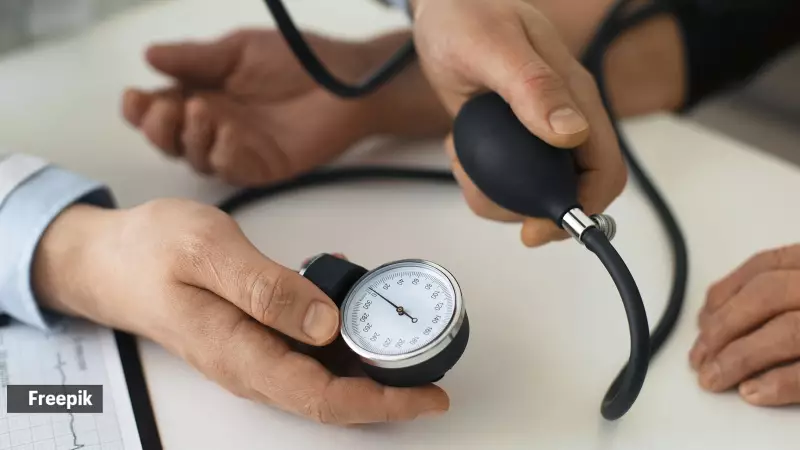
A 58-year-old individual's alarming blood pressure reading of 193/110 mmHg, shared recently on a social platform, has sparked a crucial conversation about the dangers of delayed medical care for hypertension. After visiting an urgent care center where stroke protocols were reviewed, the person was advised to consult a primary doctor, an appointment that was reportedly weeks away, leaving them to wonder, 'Am I in danger?'
What Does a 193/110 Blood Pressure Reading Mean?
We consulted Dr. Parin Sangoi, a Consultant Interventional Cardiologist at Wockhardt Hospitals, Mumbai Central, to understand the severity of this situation. Dr. Sangoi was unequivocal in his assessment, stating that a reading of 193/110 mmHg must never be ignored, even if the person feels perfectly fine.
"Treat it as a red flag and get timely medical evaluation. Blood pressure this high always deserves swift attention, not delay," he emphasized. He stressed that this is a "really high reading" that falls under the medical definition of a hypertensive crisis.
Immediate Risks and Necessary Action
Dr. Sangoi explained that such elevated pressure places intense strain on vital organs, including the heart, brain, kidneys, and eyes. This damage can occur even in the absence of common symptoms like headaches, chest pain, vision changes, or breathlessness.
While the individual may not be in imminent danger if initial tests showed no evidence of a stroke or heart attack, waiting for weeks is not a safe option. "You are not in imminent danger, while tests have come back negative with no evidence of stroke or heart attack, but you shouldn't wait weeks. Book an earlier appointment or attend an emergency department if your numbers stay high or develop any new symptoms," Dr. Sangoi advised.
What to Do Before Seeing the Doctor
If you find yourself in a similar situation, taking proactive steps is critical while you arrange for medical care. Dr. Sangoi recommends the following immediate actions:
- Monitor your blood pressure twice daily, once in the morning and once in the evening.
- Note down each reading, the time it was taken, and any accompanying symptoms like dizziness or palpitations.
- Avoid caffeine, alcohol, and heavy salt intake.
- If you are already on medication, ensure you take it regularly and do not skip or double doses without medical advice.
When High Blood Pressure Becomes a Medical Emergency
It is vital to recognize the signs of a hypertensive emergency, which requires immediate medical attention. Dr. Sangoi advises seeking emergency care immediately if your blood pressure is above 180/120 mmHg and you experience any of the following symptoms:
- Severe headache
- Chest pain or tightness
- Shortness of breath
- Blurred vision
- Confusion or slurred speech
- Weakness or numbness on one side of the body
These symptoms may indicate that high blood pressure is actively causing damage to your organs.
Lifestyle Adjustments to Manage High Blood Pressure
While awaiting a doctor's appointment, certain lifestyle modifications can help manage your condition. Consider integrating these habits:
- Significantly cut down on salt, fried, and processed foods.
- Stay well-hydrated and limit your caffeine consumption.
- Aim for 30 minutes of light activity daily, such as brisk walking.
- Practice relaxation techniques like deep breathing, listening to soft music, or taking short meditation breaks.
- Prioritize good sleep and avoid late-night stress or excessive screen time.
Disclaimer: This article is based on information from the public domain and expert inputs. It is essential to always consult your healthcare practitioner before starting any new health routine or making changes to your existing medication.






